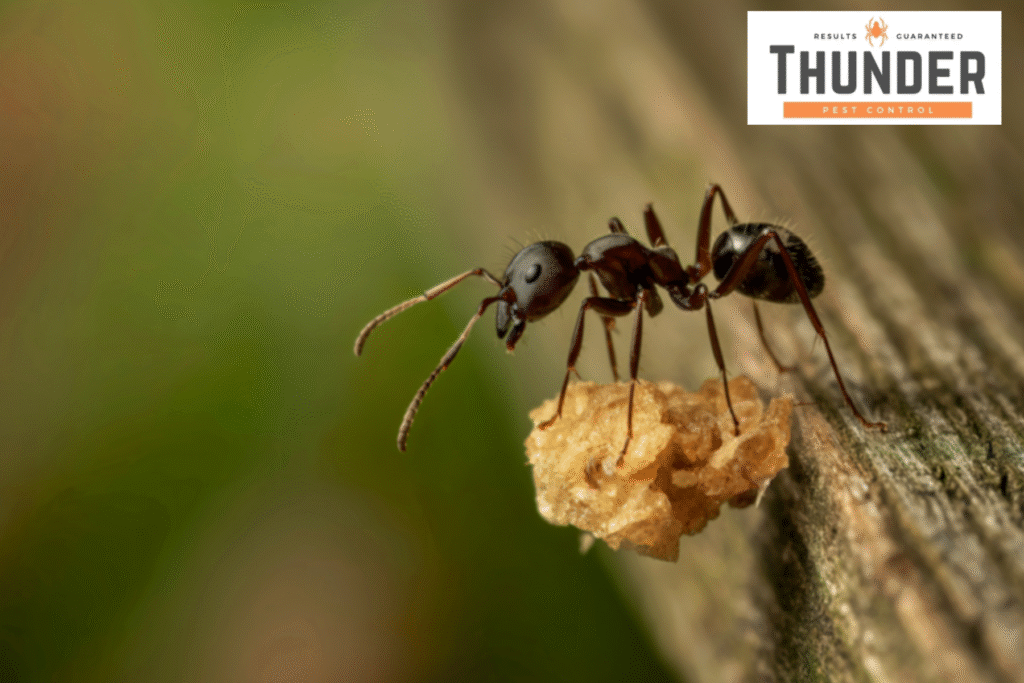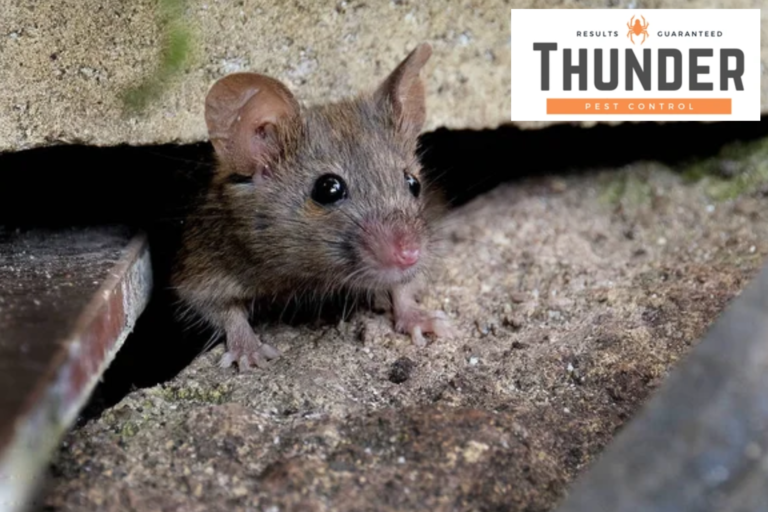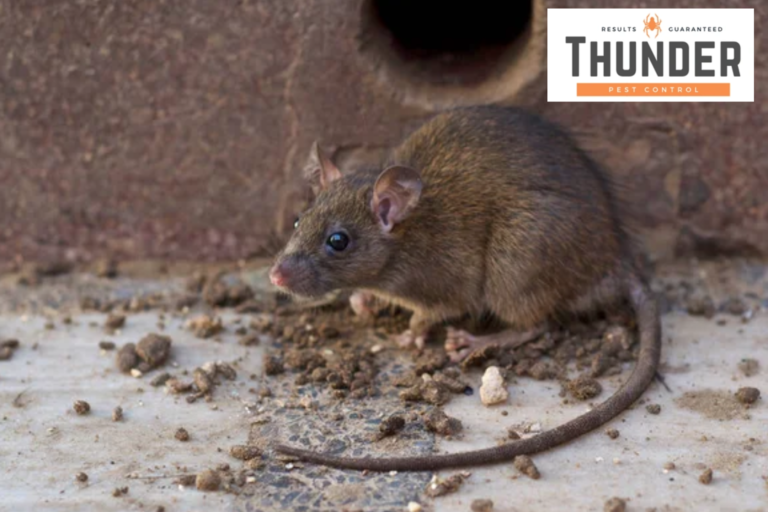Spotting black ants inside your home might seem like a minor nuisance at first but it could be the sign of a bigger issue. Not all ants are harmless scavengers looking for crumbs. If you’re seeing large black ants around windows, baseboards, or in your kitchen and bathroom, you might be dealing with carpenter ants. These ants are not just a threat to your pantry, they can also compromise the structural integrity of your home.
This article explores how to identify carpenter ants, understand the damage they cause, and take the right steps to address the problem before it gets worse.
What Are Carpenter Ants?
Carpenter ants are one of the most common indoor ant species found in the U.S. They’re typically large (ranging from 6 to 12 mm long), black or dark brown, and may have wings if they are reproductive swarmers. Unlike termites, they do not eat wood, they chew through it to build nests.
Carpenter ants prefer moist, decaying, or hollow wood and are often found in areas with water damage, such as around windows, sinks, or roofs. Once inside, they can establish satellite colonies, making them harder to eliminate without professional help.
Why Are Carpenter Ants a Problem?
The main concern with carpenter ants isn’t their bite or sting, it’s the damage they do behind the scenes. These ants tunnel through wood to expand their nests, which can weaken structural supports over time. While they don’t consume the wood like termites, the hollowing process still leaves significant destruction.
If left unchecked, a carpenter ant infestation can result in expensive repairs. Recognizing the signs of carpenter ants in house early can save you from long-term damage.
Common Signs of a Carpenter Ant Infestation
Knowing what to look for is key. Here are the most common warning signs that black ants inside your home may actually be carpenter ants:
1. Presence of Large Black Ants
Seeing a few ants might not seem serious, but if they’re large and slow-moving especially around moisture-prone areas you could be seeing foragers from a carpenter ant colony.
2. Frass (Wood Shavings)
Carpenter ants don’t eat the wood they tunnel through. Instead, they push out the debris, which looks like sawdust or small wood shavings. If you notice piles of frass beneath wooden beams or near baseboards, that’s a strong indicator of an infestation.
3. Rustling Noises Inside Walls
In quiet environments, you may hear a faint rustling sound inside your walls or ceilings. That could be the sound of carpenter ants moving through wood structures.
4. Winged Ants Indoors
Finding winged ants indoors especially during spring and early summer is a sign that a colony is established nearby. These reproductive ants swarm to form new colonies, and their presence indoors often means the nest is inside the house.
5. Hollow-Sounding Wood
If you tap on wooden structures and they sound hollow, carpenter ants may have tunneled through them. This is especially common near window sills, door frames, and other moisture-prone areas.
Do Carpenter Ants Bite?
Do carpenter ants bite? Yes, but it’s rare for them to do so unless they feel threatened. Their bite can break the skin and might cause a mild burning sensation due to the formic acid they inject, but they are not aggressive and do not pose a significant health risk to humans.
That said, their presence is still alarming not because of their bite, but because of the damage they can do silently and persistently.
How to Prevent Carpenter Ants from Entering Your Home
Once inside, carpenter ants can be difficult to remove without professional help. However, there are steps you can take to minimize your risk of an infestation:
- Eliminate moisture problems: Fix leaks in roofs, plumbing, and around windows. Carpenter ants are attracted to moist, decaying wood.
- Seal entry points: Use caulk to close gaps and cracks around your home’s foundation, doors, and windows.
- Trim vegetation: Branches and shrubs that touch the home can serve as bridges for ants to access your house.
- Store firewood properly: Keep wood piles away from your home’s exterior and off the ground.
- Keep kitchens clean: While carpenter ants don’t eat wood, they’re still attracted to sugary or greasy foods.
These preventive measures can make your home far less inviting to foraging ants and nesting colonies alike.
DIY Treatments vs. Professional Ant Control
Over-the-counter ant sprays and baits may help with minor problems, but carpenter ant infestations often require more advanced solutions. The nest is usually hidden within walls or woodwork, making it nearly impossible to reach with consumer-grade products.
For homeowners searching for ant control near me, the best approach is often professional Newcastle pest control services that can inspect, diagnose, and treat the issue comprehensively.
Experts use non-repellent insecticides, dusts, and targeted baiting systems to eliminate colonies from the inside out. They also know how to identify satellite nests and monitor re-infestation risks.

When to Call in the Professionals
If you’ve noticed any of the warning signs mentioned above especially frass, large black ants, or rustling sounds inside your walls it’s time to take action. The sooner you address a carpenter ant infestation, the less damage you’ll face in the long run.
Residents searching for pest control Newcastle OK or looking for dependable pest control options can count on professionals to handle carpenter ants safely and effectively. These services not only eliminate current infestations but also help prevent future ones through regular monitoring and exclusion strategies.
About Thunder Pest Control
Thunder Pest Control is a locally trusted pest management company serving Newcastle, OK, and the surrounding areas. We specialize in environmentally responsible pest control solutions that protect homes and businesses from ants, termites, spiders, and more. Our team is trained to identify and eliminate even the most hidden pest issues including difficult-to-spot carpenter ant colonies. Whether you’re dealing with a sudden infestation or need proactive pest maintenance, Thunder Pest Control delivers expert solutions tailored to your needs




